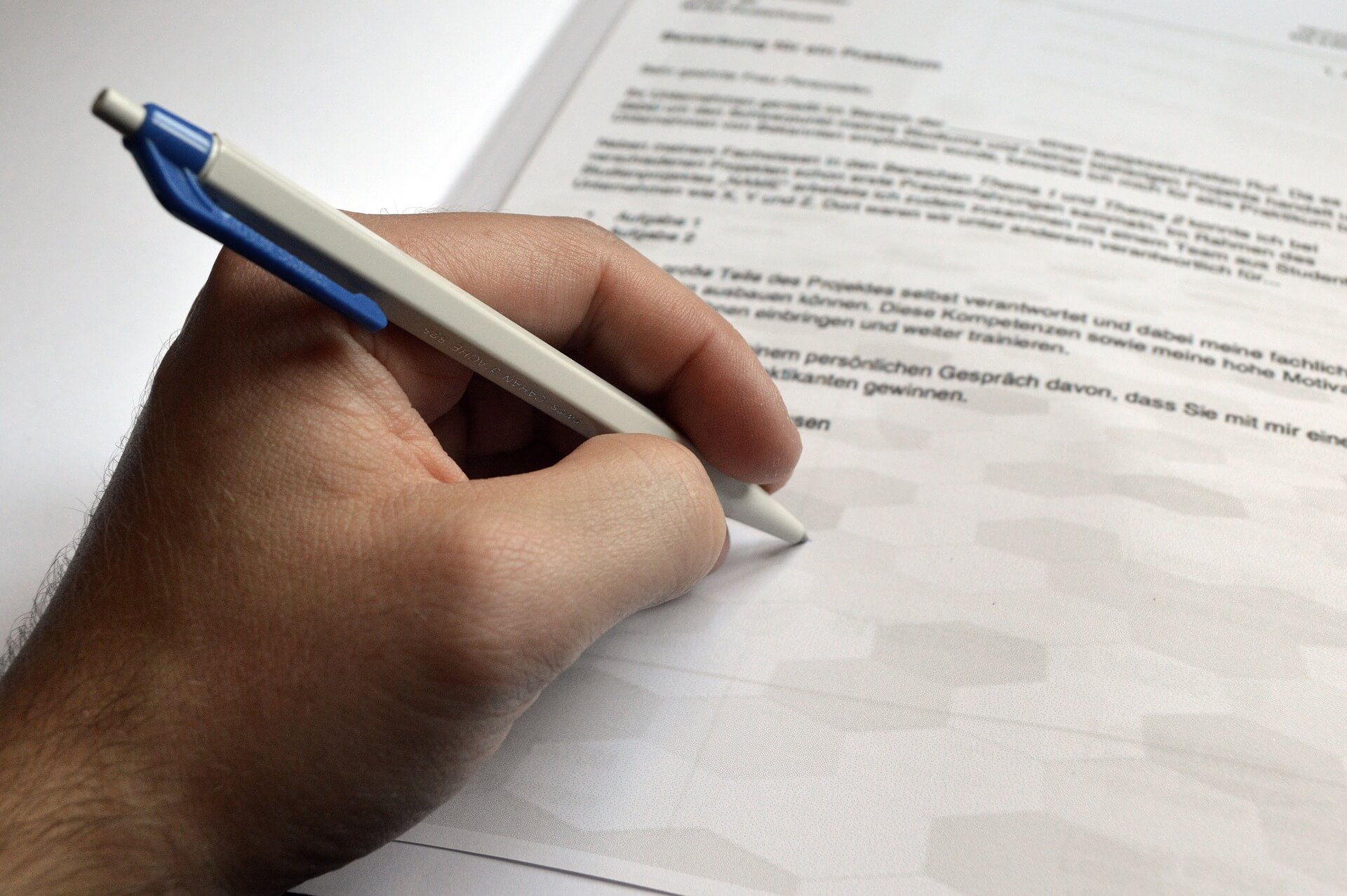When writing an application letter for a job in Germany, there are several key elements you should include:
- Personal details: Include your name, address, email, and phone number.
- Address the recipient: Use the appropriate salutation such as “Sehr geehrte Damen und Herren” (Dear Sir/Madam) or “Sehr geehrte Frau/Herr” (Dear Ms./Mr.) followed by their surname.
- Introduction: State the position you are applying for, how you found out about the job opening, and why you are interested in the position.
- Education and qualifications: List your educational background, including your degrees, certificates, and relevant courses. Also, highlight any other relevant skills or qualifications you have that make you suitable for the job.
- Work experience: List your previous work experience, including the job title, employer, and duration of employment. Highlight the responsibilities and achievements that demonstrate your suitability for the job.
- Motivation: Explain why you are interested in the position, why you are the right fit for the company, and what you can bring to the team.
- Closing: End the letter with a thank you note and express your interest in an interview. Also, include your availability for an interview and provide your contact information.
- Sign off: Use a formal closing such as “Mit freundlichen Grüßen” (Sincerely) followed by your full name.
Remember to keep your letter concise, clear, and well-structured, and always customize it to the specific job and company you are applying to.
How to write a motivation or cover letter for a german job?
Structure of a professional resume
There is no hard and fast rule on how a professional resume should be structured. But in practice, the following structure has proven to be effective:
Upper segment
The first section of the resume contains the most important personal information about the applicant.
Header of the resume
The header of the resume includes your full name in a font that must be about 4 sizes larger than the rest of the resume. The header also includes your contact information in the form of address, email address, and phone number. If you are applying for a creative job, you can also add a link to your portfolio or blog in the header.
Professional summary
Your professional summary or personal profile is best stated below the resume header. It should be no longer than about 4 to 5 short sentences. It should illustrate to the recruiter your relevance as a potential candidate (m/f/d) for the job. It is a good idea to write the professional summary after you have written and formatted the rest of your resume. This will make it easier for you to succinctly summarize your expertise by referencing your work experience, skills, and education.
Key skills
The top segment of your resume should also highlight your key qualifications. You can list them for easier understanding by the hiring manager. List about 5 or 6 key qualifications. Use skills that are relevant to the advertised position.
Experience and professional career
The middle segment is the most important part of the resume and will determine whether you get hired or not, as it shows your professional knowledge and work experience.
It is always a good idea to mention your professional background or experience in bullet points rather than just in paragraphs. This will give the recruiter a good and easy to read overview of your career stages.
There are basically three ways you can structure the “Work Experience” section of your resume.
Antichronological structure. The antichronological structure of the resume essentially focuses on presenting your work experience in an antichronological format. This means that you mention your most recent job at the very beginning of your work experience section

Different CVs for different positions
Why you should customize your resume
Different things matter for different industries and jobs. To avoid recruiters having to read a long document, you should only include information in your resume that is relevant to the company. Here’s a brief summary of how to customize your resume accordingly and what things you should pay special attention to in different industries.
Resume for finance
The world of finance is mainly for people who are structured and have good planning skills. Financial advisors must be able to assess risks and advise clients properly accordingly. Organizational skills are also an advantage if you want to go in a different direction within the industry and perhaps work in insurance or taxation. In addition, depending on the exact job description, you should have a certain talent for communication. If you are aiming for a job in a bank, for example, you should be able to communicate well with people. Persuasiveness and sales talent are also an advantage.Not only communication skills are important, but also creativity. While relevant previous experience in the industry is beneficial, career changers are also qualified for the marketing field.
If you have no previous experience in finance, it may be beneficial to emphasize your organizational skills in your resume. The resume should also be clear and classically structured. Choose a font that is easy to read and it is better to avoid unnecessary designs.
Resume for the IT sector
Relevant experience you may have gained so far in this industry includes all forms of computer skills. Hardware, software or technology – all of these can have a positive impact on your application. Therefore, list any computer or software courses on your resume. Any experience with computer applications and processing programs can be beneficial. Include the exact names of the programs and your skill level. This can either be in the form of school grades (very good or good knowledge, basics) or in years.
Depending on the specific job description, you can usually omit social soft skills. What can become important, on the other hand, are foreign language skills. In the IT world, English is the central language, which is why good knowledge of this language is often even required, which can at least give you an edge over other applicants*.
Curriculum vitae for the marketing sector
In the marketing industry, one thing above all is important: you need to know what people want and should have a feel for people and trends. To apply for a job in this field, you should be able to clearly highlight that you have skills in this regard. Not only communication skills are important, but also creativity. While relevant previous experience in the industry is beneficial, career changers are also qualified for the marketing field.
Try to showcase your persuasive nature on your resume. Put yourself in the best light and communicate your strengths. If you market yourself well, this is already the first presentation of your skills.
Resume for the field of graphic design
In the field of graphic design and all other artistic professions, creativity is the main focus. Your flair for designs, colors and shapes should definitely be referenced in your resume. Choose a color scheme that appeals – with a maximum of two colors. The eye also loves empty space, so design your layout generously and don’t overload the page too much. Less is sometimes more.
When applying for creative jobs, you will usually also include your work samples or portfolio. If you have a strong collection of previous work, then a detailed resume is often not even necessary, because recruiters can already get a clear picture of how you work.
Resume for social professions
For social and teaching professions, you should focus primarily on your soft skills. In this industry, it is very important that you are good with people. Negotiation and communication skills are important, as are dispute resolution and problem-solving skills. For example, mention previous nursing or social work experience on your resume. Volunteer work with people or even animals can also be beneficial when applying for jobs in this industry.
Feel free to describe your personality as well, thereby conveying why you are particularly suited for a job with a lot of contact with people. Empathy, patience and sensitivity can be cited here.
Resume for the tourism industry
For the tourism and hospitality industry, you should have excellent communication skills as well as a good customer orientation, as these are key requirements for these service professions. Of course, you cannot read the wishes of all customers and guests from their eyes, but you should still make sure to focus on your service experience in combination with patience and organizational skills.
In tourism businesses as well as in gastronomy, foreign language skills are usually an advantage. Therefore, be sure to mention language courses
Resume without work experience
Are you fresh out of school or college and have no work experience yet? Are you a career changer in the industry and have never worked in the field in question? No problem. You can still design your resume in a way that recruiters won’t immediately discard it.
Think about what’s relevant to the company and job you’re applying for. Which of your skills could help you do a good job and perform the job to your supervisor’s satisfaction? What special characteristics set you apart that make you an asset to the company? What certificates or skills do you have that make you special in your own right?
Don’t be afraid to openly admit that you haven’t had direct experience in the area in question. However, convey that you will approach the matter with motivation and eagerness and that you are up to the new challenge.

Here is an example for a written CV & Cover Letter
CV Example:
[Your Name] [Address] [Phone Number] [Email Address]
Professional Summary: [Insert a brief statement summarizing your experience and qualifications]
Education: [Insert your highest level of education first, including the name of the institution, degree/diploma received, and year of completion]
Work Experience: [Insert your most recent work experience first, including the name of the employer, job title, dates of employment, and a brief description of your duties and achievements]
Skills: [List any relevant skills you have that are specific to the job you are applying for]
Languages: [List any languages you speak and your level of proficiency]
Certifications: [List any relevant certifications you have received]
References: [List two to three professional references with their names, titles, and contact information]
Cover Letter Example:
[Your Name] [Address] [Phone Number] [Email Address]
[Date]
[Employer’s Name] [Company Name] [Address] [City, State ZIP Code]
Dear [Employer’s Name],
I am writing to apply for the [Job Title] position at [Company Name] as advertised on [source of job posting]. As a foreigner with [Number of Years] years of work experience, I believe I am the perfect candidate for this role.
I hold a [Degree/Diploma] from [Name of Institution] and have [Number of Years] years of experience in [Field of Work]. My experience has given me the opportunity to work on [Insert Your Achievements or Major Projects You Worked On]. I am confident that my skills and expertise make me a perfect fit for this position.
In my current role at [Current Employer’s Name], I have been responsible for [Insert Your Responsibilities or Major Projects You Worked On]. My skills in [Insert Skills] have allowed me to [Insert Major Achievements] which have directly contributed to the success of my current organization.
I am excited about the opportunity to work with a company like [Company Name], and I believe that my skills and experience align well with the requirements of the position. I am confident that I will be able to contribute positively to your team and help achieve your company’s goals.
Thank you for considering my application. I look forward to the opportunity to discuss my qualifications further in an interview.
Sincerely,
[Your Name]

And finally: You should avoid these at all costs!
Regardless of what industry you are applying for, here are some things you should avoid at all costs on your resume (use the correct job titles for your resume):
Gaps in your resume.
Try to avoid gaps as much as possible. As a rule, there is always something you did at some point, even if it wasn’t a full-time job. Include continuing education, courses and other training. International experience is also welcome in most industries.
Mistakes.
Be sure to avoid careless mistakes. Spelling and grammar should be impeccable. Ideally, have the resume proofread. Mistakes make you look unprofessional and can cause your application to be rejected from the start.
Too much information.
The resume should never be too long. If it is longer than two pages, recruiters will most likely not read it in its entirety. Try to be as brief as possible, use bullet points instead of full sentences, and focus on the essentials.
Always remember: your resume is your business card. You can make a good first impression with a personalized resume that is tailored to the company in question and the job description. Therefore, take your time with your resume and consider the tips and suggestions in this article.
For further informations how to work & study in germany just follow the links below or follow us on social media& newsletter and get all important informations about life in germany.
How i can apply for apprenticeships in germany?
Have a look here:
Hot and New: Application Generators
Jobs in Germany: How to apply in 5 Steps
Also have a look at other possibilties to do an eduction in Germany
Here are some more and detailed informations:
Traineeships and Trainee-Programs Germany
